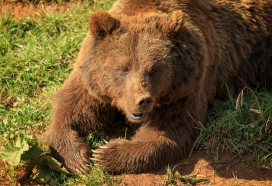
FSC has joined 100+ NGOs supporting the #Together4Forests movement.


In Sweden, FSC certificate holders conduct forest management in the same area used by the Sámi—Indigenous Peoples in Sweden—for their traditional reindeer herding activities. FSC Sweden’s national forest stewardship standard (NFSS), which is based on the principle of Free, Prior, and Informed Consent (FPIC), plays a key role in facilitating landscape sharing between the two parties. Assurance Services International (ASI) conducted an investigation into the effectiveness of the NFSS in fostering dialogue and preventing disputes between Sami reindeer herders and FSC forest management certificate holders in northern and central Sweden.
This investigation was initiated because of an increase in complaints and incidents ASI recorded since 2016 regarding disputes between Sámi reindeer herders and FSC forest managers. Stakeholders have voiced their concerns about the impact of forest management (FM) activities like timber harvesting and road building on the reindeer herding activities of the Sámi.
Through this investigation, ASI and FSC sought to understand if the normative changes in the latest version of Sweden’s NFSS, effective from 2020, have improved the dialogue between the Sámi reindeer herders and FSC certificate holders, thereby resulting in a sustained reduction in disputes between the two parties.
Background
The Sámi are Indigenous Peoples who practice reindeer herding, which is rooted in their traditional cultural practices. The Swedish constitution recognizes their rights to practicing reindeer herding. The reindeer herders belong to different Sámi villages, which are administrative and legal entities as well as geographical areas. However, the land on which Sámi practice their reindeer herding in Sweden is owned by the Swedish State, private companies, or individual smallholders.
The primary food sources for the semi-domesticated reindeer are ground lichens and arboreal lichens that grow in pine and spruce forests. These lichen-rich forests often possess timber characteristics desirable for harvesting by FSC certificate holders. The primary source of disputes between FSC certificate holders and Sámi reindeer herders lies in the impact of forest management activities on the pasturable areas needed for reindeer herding.
Reindeer husbandry is carried out over nearly 50 per cent of Sweden's surface, much of which is certified under the Swedish NFSS. The Swedish NFSS recognizes that FPIC is required where forest management activities affect Indigenous Peoples’ rights and resources.
The Swedish NFSSincludes a procedure for dialogue called ‘participatory planning’ (samplanering in Swedish). The participatory planning process between FSC certificate holders and Sámi reindeer herders aims to facilitate dialogue about landscape sharing.
Methodology
ASI conducted a literature review that included sources like the ASI database of complaints and incidents, publicly available reports, articles, blog posts, peer-reviewed research, and media coverage. ASI also analysed public audit reports of FM certificate holders, and the protocols of a body established by FSC Sweden to review disputes between Sámi representatives and certificate holders.
Additionally, ASI conducted in-person interviews with representatives of eight different Sámi villages in Norrbotten, Vasterbotten and Jämtland counties. Representatives of five FM certificate holders were interviewed. Two certification bodies were interviewed as well, in addition to members of FSC Sweden and five independent experts on reindeer husbandry, Sámi legal rights, and biodiversity conservation.
Key findings
The number of incidents, complaints, and disputes registered with ASI and FSC have reduced with the implementation of the latest version of the Swedish NFSS. However, stakeholders continue to express concerns through public platforms like the media, reports, blogs, and social media.
Some of the key findings of this investigation were:
ASI’s recommendations to FSC
During the revision of Sweden’s NFSS, ASI recommends that FSC:
To read more about this investigation—purpose, methodology, findings, and recommendations—refer to the public summary of the investigation report.
Next steps
FSC is exploring ways to improve dialogue and constructive engagement between the Sami reindeer herders and FSC certificate holders in the future. Some initiatives are already underway: